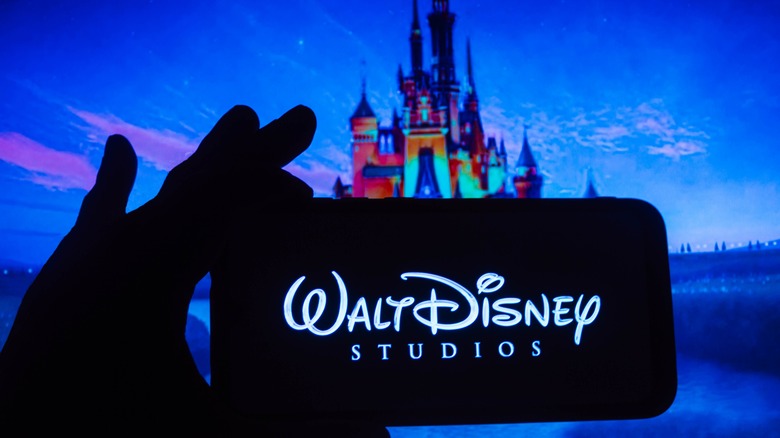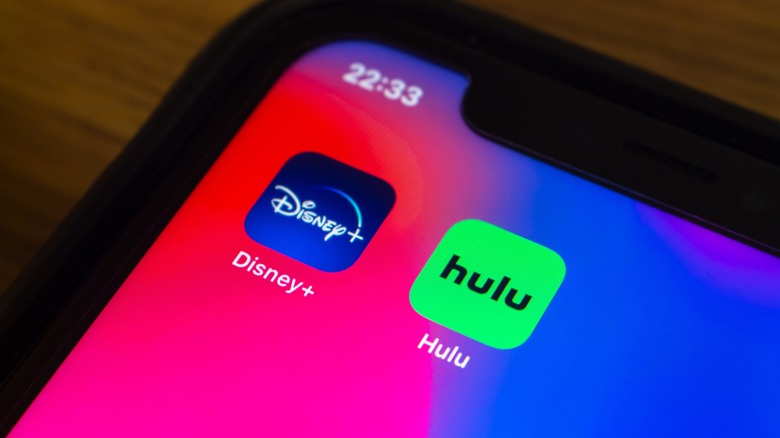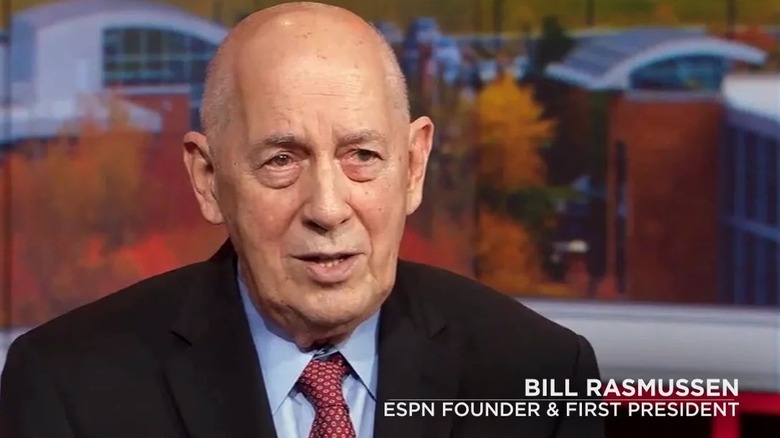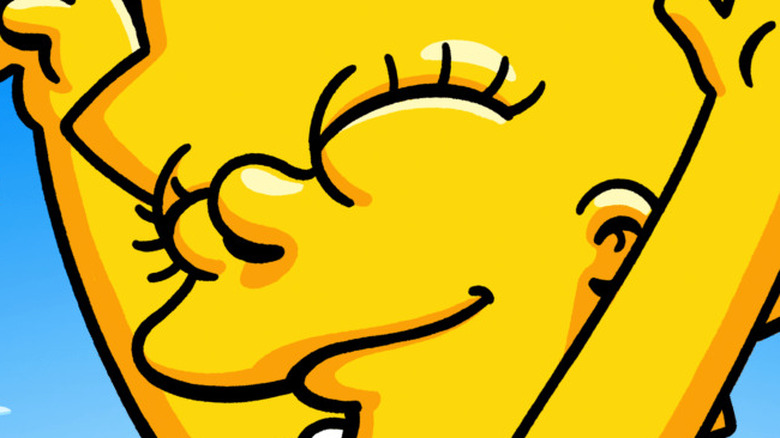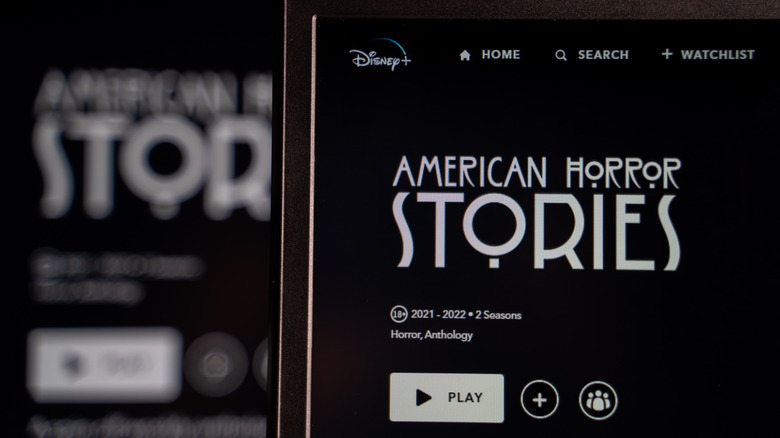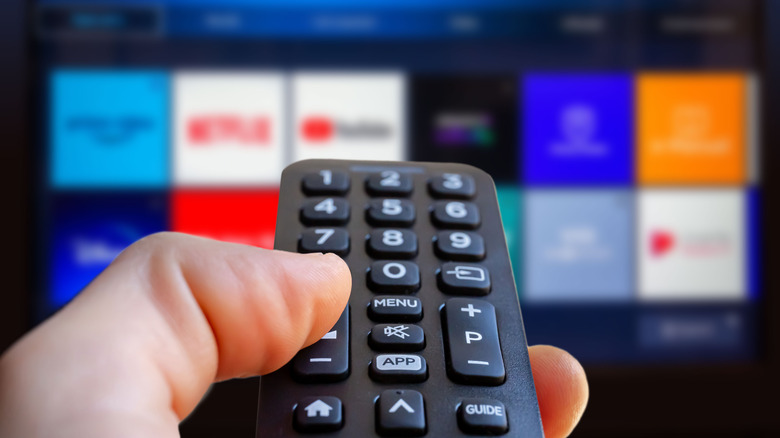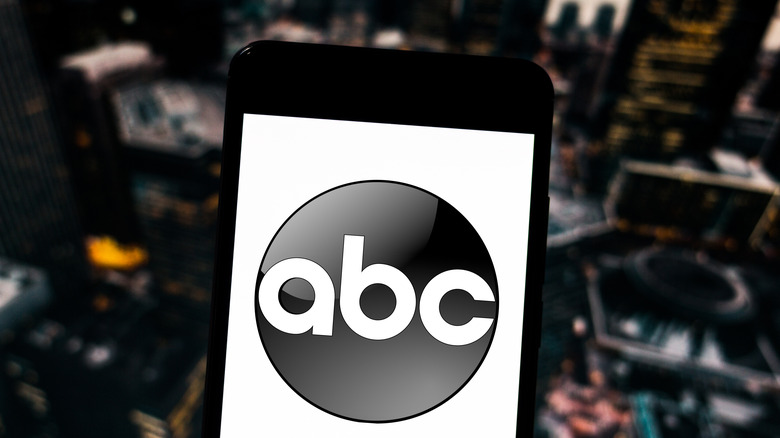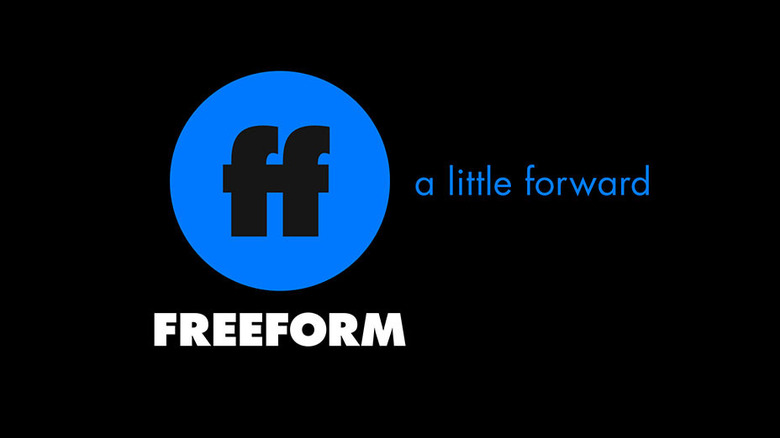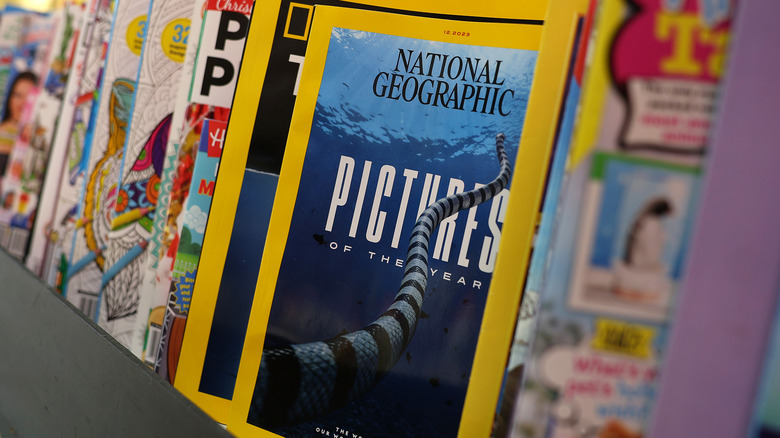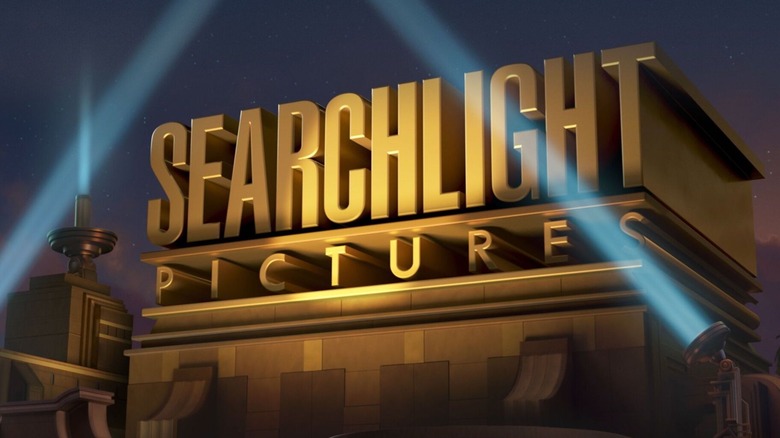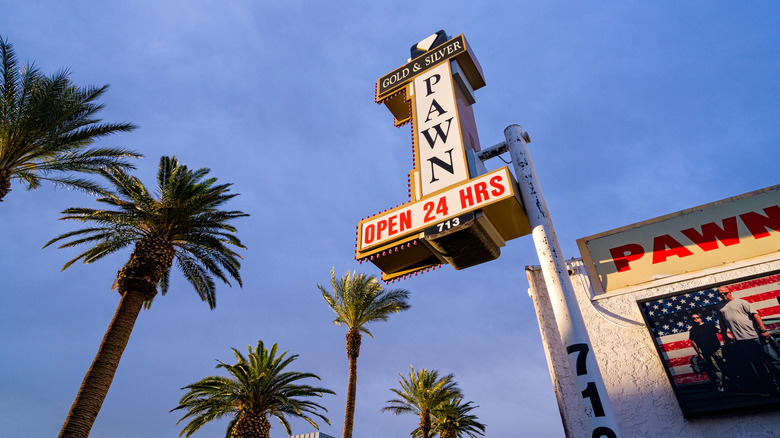10 Streaming & Entertainment Brands You Might Not Realize Are Owned By Disney
From the Disney+ streaming app to the Disney Channel to Pixar to the company's century-plus history in animation and filmmaking, it's hard to ignore Disney's impact on the industry. However, some lesser-known streaming and entertainment brands aren't in-your-face-branded Disney, though they benefit from the media conglomerate's deep pockets.
The company may invoke warm fuzzy feelings for most viewers, but many subscribers were unhappy about Disney's decision to enact a price hike after a crackdown on password sharing. Yet even disgruntled customers may still be paying Disney — without realizing it — through its other entertainment subscriptions. So let's take a deeper dive into the lesser-known brands that you might not know are affiliated with Disney at all.
These are a handful of the streaming and entertainment brands that lie under Disney's umbrella. The data comes directly from Disney's 10-K earnings report for the fiscal year ending in September 2023 — and it might be surprising to see what big names are on the list.
Hulu
Not long ago, Hulu stood alone, though discounted bundles packaged Disney+ with the service. If subscribers wanted to watch Hulu shows, they had to go directly to Hulu. Now, Disney owns 67% of Hulu (as of September 2023) and is combining services.
The merger happened rather quietly, and the visible difference didn't show up until sometime in March 2024; the Disney+ logo shifted, from blue to a more blue-green. Various sources suggested that the logo changed to incorporate Hulu's trademark green, but Disney didn't make a statement about the color change.
Mixing the colors was a smart move because it created a conversation about Disney+ and Hulu. If viewers didn't notice the Hulu programming popping up on their Disney+ feeds, they were bound to hear about the merger in some way.
As far as services go, things haven't changed all that much, except that Hulu content is now part of the Disney+ lineup (though it's still available separately, too). We have some complaints about the current Disney+ and Hulu bundle, although the cost might be worth the savings versus signing up for a single service at a time.
ESPN+
ESPN+ is another Disney+ bundle offering, but subscribers may not have realized that Disney owns ESPN. The Entertainment and Sports Programming Network first debuted in 1979, under the care of founder Bill Rasmussen. The name changed in 1985 to ESPN, Inc., after ABC bought almost 100% of the company. ESPN is open about The Walt Disney Co.'s ownership of the network, though Hearst Corporation owns a 20% share.
Hearst is well-known in the publishing industry and is headed by the Hearst family, whom Forbes notes is worth $22.4 billion (compare that to the Disney family's $130B). Hearst owns various magazines, newspapers, and TV channels, plus specific TV shows. Some of its biggest names are Cosmopolitan and Elle Magazine.
As for Disney and Hearst's ESPN offerings, ESPN+ streaming has been available for a while. Yet to date, it still doesn't match what's available on cable TV. That's because ESPN+ is a supplemental service, not a full channel, though there are plans to collaborate with other sports brands on a streaming service.
Fox
Fox is another surprising addition to Disney's array of entertainment brands, but it won't be the Fox you know for long. The conglomerate plans to rebrand Fox to FX or Star in the 2024 fiscal year. That doesn't mean your favorite programs are leaving, though. In fact, the change could mean even more content on the same subscriptions you already have and love.
A Hulu expansion happened when Disney bought Fox in 2019, as much of the content on Hulu was previously aired on Fox. Bringing all that content together was a win for Disney, as Fox had big-name shows like "That '70s Show," "The Simpsons," "Family Guy," and "Married... with Children." Fox airs everything from dramas to comedies to reality shows, animated series, game shows, and more.
After the merger, Fox shows became available just about everywhere, from Disney+ to Hulu to the FOX app itself. There were some hiccups, however; "The Simpsons" didn't fit the Disney+ aspect ratio, causing fans to miss out on some key punchlines because of cropping. Disney+ later remedied the issue, releasing "The Simpsons" in its original format.
FX
FX — aka Fox eXtended — is probably best known for its smash hit "American Horror Story" (although it isn't an FX "original"; "American Horror Stories" is) but it's also a Disney property. It's not surprising to learn this network is part of Disney's entertainment branding once you know Fox is also under that umbrella.
With all of FX's content moving to Hulu under Disney's Fox acquisition, there was even more content to love from Disney's subsidiaries. Along with "American Horror Story," other popular FX shows include "Nip/Tuck," "American Crime Story," "Reservation Dogs," "The Americans," and — its highest-rated show to date — "Sons of Anarchy."
FX's content is often grittier than Disney's standard, family-friendly fare, but as is already clear by the diversity in the brand's portfolio, Disney likes to have a little something for everyone. It's not surprising that the mega-brand continues to pursue more entertainment avenues.
The Walt Disney Company bought FX (formerly 20th Century Fox) in 2019, but the details became murky from there. With Hulu still active on its own at the time, some shuffling happened before FX found its true home with Disney.
Star+
Star+ is another lesser-known streaming service nestled under Disney, perhaps because it's only available in Latin America. Star+ is the streaming product connected to Star, another of Disney's geographically specific offerings. It offers a range of content, including sports from ESPN, and comes as a bundle with Disney+ (Combo+).
The Star+ website isn't functional for those outside its service area, so it's difficult to see what the exact lineup is. The service is said to cover all of Ibero-America except for Cuba. Streaming is available in Spanish and Portuguese, but it's not clear whether that's dubbed original programming, unique programming for Latin America, or a combination of both. English is not listed as an option.
For viewers interested in Star+ but living in the U.S. or elsewhere outside the service area, installing a VPN might allow access. Price-wise, it might not be worth the effort, however. As of April 2024, pricing is $12.59 per month for Star+ and $14.99 for Combo+. For reference, a Disney+ bundle that includes ESPN is $14.99 per month (with ads on Hulu and ESPN+).
ABC Television Network
ABC is one of the company's oldest entertainment subsidiaries. The collaboration between Walt Disney and ABC began way back in 1954 when ABC invested in Disneyland, according to D23, Disney's official fan club site.
At the time, ABC gave $500K cash and millions of dollars of support via loans, cementing the network as a one-third owner of Disneyland in the Los Angeles area. Walt Disney tapped ABC to promote Disneyland, which opened in Anaheim, California, in 1955. The opening was celebrated during an ABC special live broadcast, an interesting fact given that modern-day Disneyland needs no introduction (though Disney does note costs for advertising, it doesn't offer specifics in its report).
Many years later in 1996, Capital Cities/ABC and Disney merged. The $19 billion merger (over $37B in today's value) meant that Disney also owned various radio stations, a bunch of trade journals and shopping guides, a list of newspapers, and various channels, including ESPN, Lifetime Television, The History Channel, and A&E Network.
Disney didn't stay in the publishing or radio business for too terribly long, instead selling off most of the holdings within a few years.
Freeform
Freeform is an often-overlooked Disney brand that targets younger female viewers. Popular Freeform shows have included "Boy Meets World," "Switched at Birth," "The Secret Life of the American Teenager," "Young & Hungry," "The Fosters," "Pretty Little Liars, and Grown-ish."
Disney has made some changes over the years that impact which cable providers offer Freeform, with the latest being a deal with Charter Communications. The new deal led to Freeform dropping off Spectrum service, which Disney execs called a trade-off. Freeform had already changed a lot before Disney acquired it, so it doesn't seem like the conglomerate is worried about changing things even more.
Freeform was originally a Christian broadcasting station founded by a TV evangelist and offered programming from Christian talk shows to sermons to Westerns. By late 1980, things changed, and the brand was no longer a nonprofit, so the programming changed accordingly. Disney bought what is now Freeform in the late '90s when it became ABC Family, and plenty more changed after that.
Interestingly, one piece of the original buyout contract requires Disney to continue to air "The 700 Club," one of the founder's religious shows, amid more modern hits aimed at the 18 to 34 age bracket.
National Geographic
National Geographic is a massive brand, and Disney owns 73% of it. The brand is, of course, best known for its nature programming, as well as its magazines and online offerings. As of Disney's September 2023 earnings report, National Geographic had over 110 million subscribers between its Nat Geo and National Geographic Wild channels. National Geographic is a more diverse business than just that, too; in 2019, it partnered with Cellular Abroad to offer affordable long-distance calling in the U.K.
National Geographic also shows up in the "experiences" section of Disney's earnings report, because Adventures by Disney has a National Geographics Expeditions segment. Apart from Disney cruises, hotels, and theme parks, Nat Geo is the only other listed experience. The "guided tour packages" are offered "predominantly" at properties — other than Disney — worldwide.
With so many changes, both under Disney and in publishing, National Geographic moved away from selling physical copies of its magazines at newsstands. The good news is that the magazines are available both digitally and in print for subscribers, plus Nat Geo programming continues to be available via Disney subscriptions.
Searchlight Pictures
Searchlight Pictures, like other Disney entertainment brands, has been around for decades. Its name and structure changed various times; in 1994, Searchlight was Fox Searchlight Pictures. Later, it became 20th Century Fox, then 20th Century Studios.
Over the decades it's existed, Searchlight has released many critically acclaimed titles, like the recent offbeat hit "Poor Things," which premiered in 2024. Other popular Searchlight titles include "Napoleon Dynamite," "The Descendants "(a 2011 George Clooney feature), "Black Swan," "12 Years a Slave," "Slumdog Millionaire," "Juno," "Little Miss Sunshine," and many others.
Searchlight Pictures might not be the biggest or most well-known name in Disney's portfolio, but the subsidiary is good at what it does. Poor Things won five Oscars, proving it's not just the U.S.-produced films that make waves. Unlike some other brands, this Disney property stands on its own and doesn't seem to rely on the conglomerate's reputation in the least.
A+E Television Networks
A+E is another surprising Disney addition; Disney holds a 50% equity investment in A+E Television Networks. The other 50% is owned by Hearst, in a similar situation to ESPN. The brand owns subsidiary networks like A&E, The History Channel, Crime + Investigation, Lifetime, Vice TV, and others. Its programming spans many countries and territories (200-plus), and Disney also licenses it to international TV services outside its ownership.
According to Disney's 2023 earnings report, A+E had more than 280 million subscribers across its various channels. Disney also reported a gain of $56 million on A+E based on a content license agreement ending plus an increase in investees' earnings because A+E made more across the board.
Disney may have cut jobs to make streaming more affordable, but it still has many more income streams than the average entertainment conglomerate, A+E being only one of them. By the end of its 2023 fiscal year, Disney's stock was worth $182.9 billion and the net income "attributable to Disney" was stated as over $2.35 billion (2,354 million dollars).
